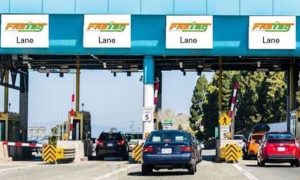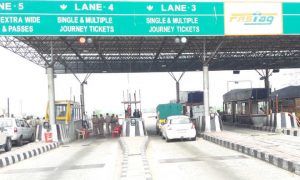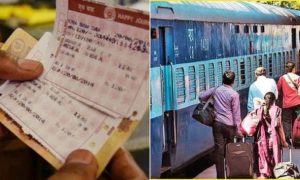Since the abrogation of Article 370 by the Narendra Modi government in 2019, a new chapter of empowerment and development has begun for the people of the erstwhile state
Administrative complexities, bureaucratic hurdles and limited access to development initiatives due to its special status were the norm in Jammu & Kashmir in the past. However, since the abrogation of Article 370 by the Narendra Modi government in 2019, a new chapter of empowerment and development has begun for the people of the erstwhile state.
The implementation of the Ayushman Bharat Jan Arogya Yojana, for instance, has enabled over 82.3 lakh registered beneficiaries to avail quality healthcare services, which were previously limited. The ‘yojana’ is the largest health assurance scheme in the world which aims at providing a health cover of Rs 5 lakh per family per year for secondary and tertiary care hospitalisation to over 12 crore poor and vulnerable families (approximately 55 crore beneficiaries) that form the bottom 40 per cent of the Indian population.
The availability of safe drinking water via the Jal Jeevan Mission brought about a revolution in the region’s water supply, delivering tap connections to 12.6 lakh households. The community approach-based scheme is envisioned to provide safe and adequate drinking water through individual household tap connections by 2024 to all households in rural India.
Jammu & Kashmir Chief Secretary Arun Kumar Mehta, while conducting a virtual tour of works taken up under the mission in February said the remaining rural households in J&K would get tap water connection by June this year. The Modi government had allocated a sum of Rs 9,289.15 crore to the UT under Jal Jeevan Mission 2022-23, which is Rs 6,412.71 crore more than the previous year’s budget allocation.
Read More: BYJU’s lenders using bogus loan-default claims to gain control: Ed-tech firm tells US court
Speaking about the Pradhan Mantri Awas Yojana (PMAY), the scheme helped in the completion of 1.7 lakh houses under PMAY (Rural) and 21,652 dwelling units under PMAY (Urban). In July this year, the Jammu and Kashmir Lieutenant Governor’s (L-G) administration approved a proposal for allotment of 5 marlas (.031 acre) of land each to the landless living in the union territory under the Pradhan Mantri Awas Yojana-Gramin (PMAY-G).
“It is a historic day for Jammu and Kashmir and a new beginning for thousands of landless families. This historic decision will prove to be a golden chapter in the administration’s effort for social justice, equality, respect, and equal opportunities to all citizens,” L-G Manoj Sinha said.
Moreover, the Bhartiya Jan Aushadhi Pariyojana played a crucial role in reducing the burden of healthcare expenses as generic medicines became readily available through 226 Jan Aushadhi Kendras. Administrative Secretary, Health and Medical Education (H&ME) Department, Bhupinder Kumar said earlier this year that number of Jan Aushadhi Kendras in Jammu & Kashmir has increased to a record 227 till date and these are providing affordable quality medicines to the people.
As per official figures in the financial year 2021-2022, there was a sale of generic medicines worth Rs 22 crore in Jan Aushadhi Kendras, which has increased to Rs 48 crore in 2022-23.
Financial inclusion also received a boost with the successful implementation of PM Jan Dhan Yojana. The opening of 26.5 lakh bank accounts, with a significant share held by women, expanded access to formal banking services and provided individuals with the means to build savings and avail credit facilities.
Read More: Twitter Fails To Publish Monthly India Compliance Report, Shows Poodle Sitting In A Chair
In the agricultural sector, PM KISAN and PM Mudra Yojana played pivotal roles. The PM-KISAN scheme entails direct cash support of Rs 6,000 for farmers, while Mudra Yojana provides loans up to Rs 10 lakh to the non-corporate, non-farming small and micro enterprises.
Apart from these sweeping changes, the scrapping of special status has also paved the way for fast-tracking infrastructure projects in Jammu and Kashmir, resulting in significant milestones like the completion of the Chenab Bridge, the world’s highest railway bridge, spanning over the majestic Chenab River or the long-awaited Atal Tunnel, the world’s longest single-tube highway tunnel.
With an annual budget of Rs 1.18 lakh crore and 53 mega projects of Rs 58,477 crore in Jammu & Kashmir and Ladakh, 32 have been completed and nine projects of Rs 21,441 crore in Ladakh are underway.
Here’s how the development has also reached Ladakh:
- Ayushman Bharat provided healthcare to 1.3 lakh beneficiaries, disbursing Rs 11.5 crore
- Jal Jeevan Mission installed 33,495 household tap connections for improved water access
- PMAY (Rural & Urban) completed 1429 houses and 666 dwelling units, ensuring decent housing
- Bharatiya Jan Aushadhi Pariyojana offered affordable medicines worth Rs 106.5 crore
- PM Jan Dhan Yojana opened 21,908 bank accounts, with 55 per cent for women
- PM KISAN allocated RS 36 crore to support farmers
- PM Mudra Yojana sanctioned Rs 960 crore for entrepreneurs





































